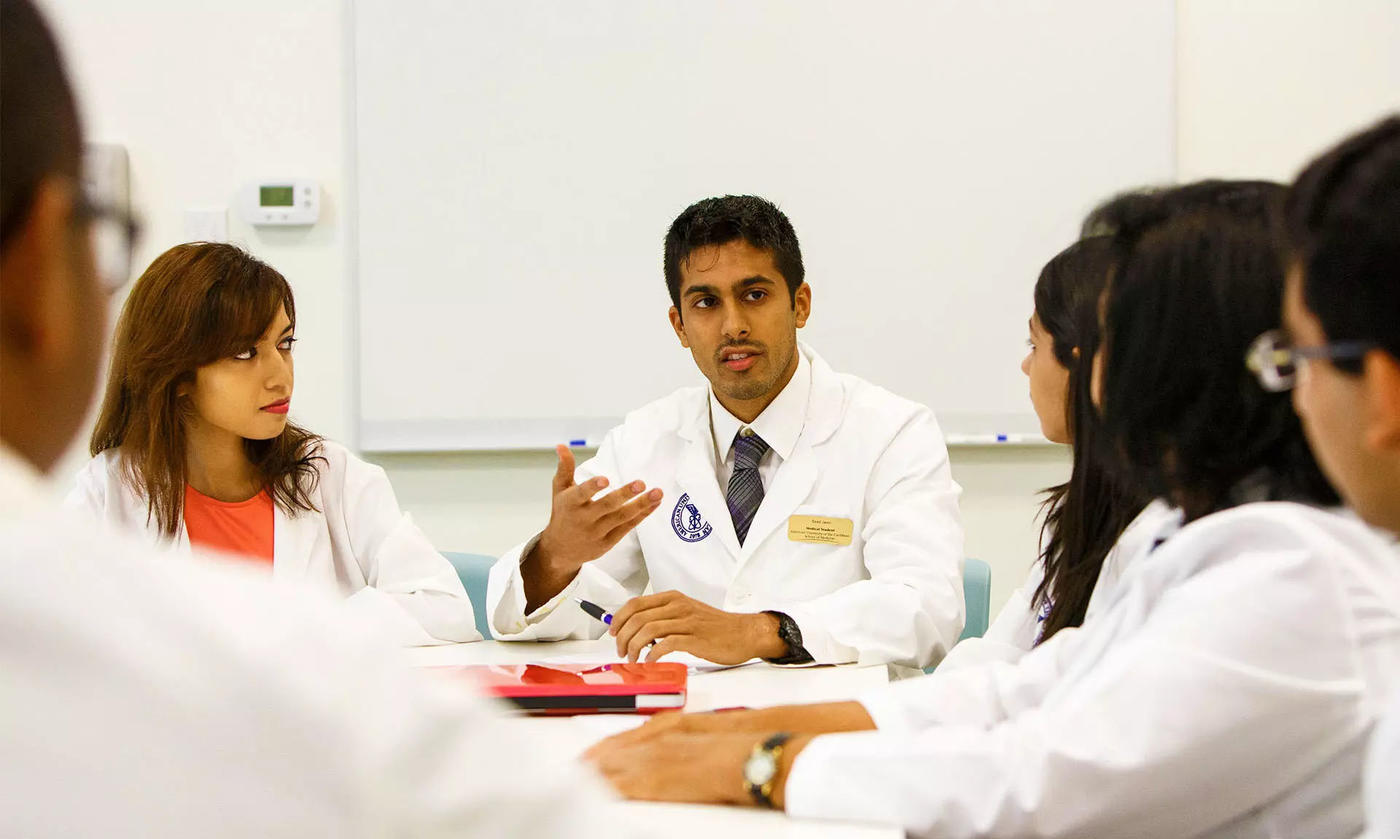First-time Residency Attainment Rate for 2023-2024 AUC Graduates*
Residency Placements
Specialties
U.S States and Territories
Residency Placement FAQs
A med school residency takes place after the completion of medical school and gives newly degreed doctors the hands-on opportunity to further practice and hone their skills before they are licensed to practice medicine.
A residency takes place after you complete medical school. A medical residency lasts a minimum of three years, but the length of time varies depending on the specialty. In all, a medical residency may last up to seven years, and then some disciplines require additional years of training known as a fellowship.
No, medical school graduates must earn a residency via an application process, as well as completing residency interviews, and rank order lists. AUC has a history of residency attainment. Review our residency placement lists for the most up to date information on location and specialties.
Residencies are earned, not given. Eligible students must apply for a residency. The process can be complex but our blog, What is Match Day, explains the process.
Grades play a role in obtaining a residency but ultimately, you will not be graded on your performance during residency.
In the US, to work as a practicing physician (ie. seeing patients), a residency is required after medical school. If working in patient care is not for you, then there are nonclinical roles that you can pursue without completing a residency.
You can not complete your residency while in medical school. During your third and fourth year of medical school, you will perform clinical rotations, also known as clerkships. Rotations are assigned shifts in clinics and hospitals during which medical students are able to practice medicine in a supervised manner. During rotations, medical students perform patient interviews, examinations, and deliver care as part of a supervised team. Rotations last several weeks and students must pass standardized tests known as shelf exams to advance.
It is difficult to determine if residency is harder than medical school because they are so different. Much of the focus in medical school is on observing procedures and learning by watching the actions of licensed physicians. There are multiple exams and you are graded on your performance. As a resident, there is little classroom work and there are no grades. Instead, your progress is measured by evaluations of your clinical abilities written by attending physicians. Residency is considered a job, and you are paid to care for patients. Residents have a much more strict schedule and less free time than medical students but work directly with patients.





